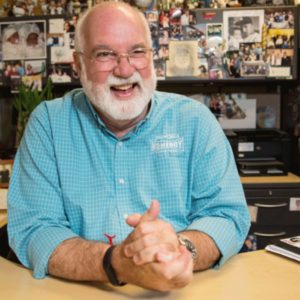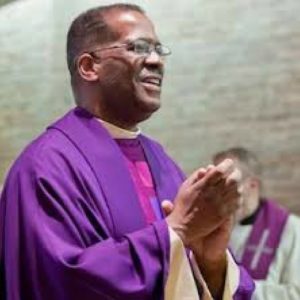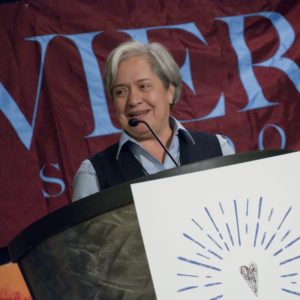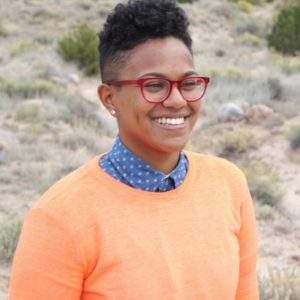Easter Monday: Duty of Solidarity
We have to make our own the “firm and persevering determination” to act on behalf of others in the interest of the common good.
Throughout Lent 2017, we hear from voices from the Ignatian network engaged in work for racial equality, criminal justice, alleviation of poverty, and environmental justice.
We seek to understand one another’s stories, to individually and collectively rise up to engage in the work of building a more just and peaceful world.

The Rev. Gregory J. Boyle, S.J. entered the Society of Jesus (the Jesuits) in 1972 and was ordained a Catholic priest in 1984. He holds degrees from Gonzaga University, Loyola Marymount University, Weston School of Theology, and Jesuit School of Theology in Berkeley.
In the wake of the 1992 Los Angeles riots, Fr. Boyle was involved in the launch Homeboy Bakery. In 2001, the business became an independent nonprofit organization, Homeboy Industries.
Today, Homeboy Industries employs and trains former gang members in a range of social enterprises, as well as provides critical services to 15,000 men and women every year. It is the largest gang intervention, rehabilitation and re-entry program in the world.
Father Boyle is the author of the New York Times-bestseller Tattoos on the Heart: The Power of Boundless Compassion and is the subject of Academy Award winner Freida Lee Mock’s 2012 documentary, G-Dog.

Fr. Gregory C. Chisholm, SJ, a native of New York City, is honored to have lived his life in service as Pastor to several African American and Latino communities in Harlem, Detroit, Los Angeles, and Oakland. He currently serves as pastor of the Church of St. Charles Borromeo in Harlem.
His focused interests include theologies of liberation and the history of black Catholics.
He serves on the governing boards of Cristo Rey New York High School and Xavier High School. Fr. Chisholm is a 4th degree members of the Knights of St. Peter Claver.
Fr. Chisholm presided at liturgy at the 2016 Ignatian Family Teach-In for Justice.

Norma Pimentel is a Sister with the Missionaries of Jesus. As Executive Director of Catholic Charities of the Rio Grande Valley for over 12 years, she oversees the charitable arm of the Diocese of Brownsville, providing oversight of the different ministries & services in the areas of the Rio Grande Valley through emergency assistance, homelessness prevention, disaster relief, clinical counseling, pregnancy care, food program(s), and the Humanitarian Respite Center.
In September 2015, Pope Francis recognized Sr. Norma for her work with immigrants.. He thanked her for her humility and her efforts and encouraged her to continue.
Sr. Norma has earned degrees from Pan American University, St. Mary’s University in San Antonio, Texas, and Loyola University in Chicago.

Kristen Trudo is a currently the Community Engagement Coordinator at La Salle Middle School, a public charter in St. Louis, while also employed by Rise Coffee House, a St. Louis business committed to social justice.
Trudo is an emerging leader in the Ignatian family, challenging oppressive structures in predominantly white organizations. Since graduating from Loyola Marymount University (’14) and moving to St. Louis as a Jesuit Volunteer, Kristen has been challenged to think about the ways she is privileged, and not; and inspired to write about black liberation, violence against LGBTQIA+ identifying individuals, and the complicity and responsibility of the Catholic Church in the oppression of these groups. Kristen hopes to continue writing and finding her place in the work to dismantle systemic oppression, especially as it related to the liberation of black lives.